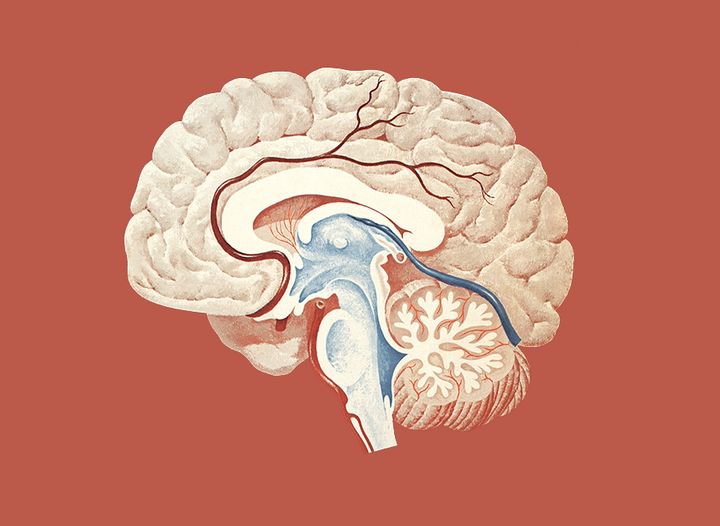By Natasha Hinde
One in three Covid-19 survivors has gone on to be diagnosed with a neurological or psychiatric condition within six months of infection, a major study has found.
The largest study of its kind to date suggests there is a link between infection with SARS-CoV-2 and subsequent mental health and neurological conditions.
Anxiety (17%) and mood disorders (14%) were the most commonly diagnosed conditions after infection, according to the study. Neurological diagnoses such as stroke and dementia were less common, but more likely in those who had been admitted to intensive care with the virus.
Lead author Professor Paul Harrison, from the Department of Psychiatry at the University of Oxford, said: “These are real-world data from a large number of patients. They confirm the high rates of psychiatric diagnoses after Covid-19, and show that serious disorders affecting the nervous system (such as stroke and dementia) occur too.”
Although the individual risks for most disorders are small, the impact on health and social care systems across the whole population may be “substantial”, said Prof Harrison, due to the scale of the pandemic.
As many of the conditions in question are chronic, health care systems need to be adequately resourced to support those affected, he added.

CSA Images
Anxiety (17%) and mood disorders (14%) were the most common issues experienced post-Covid.
Researchers analysed data from the electronic health records of 236,379 Covid-19 patients from the US. Patients who were older than 10 and who became infected with the SARS-CoV-2 virus after 20 January 2020, and were still alive on 13 December 2020, were included in the analysis.
This group was compared with 105,579 patients diagnosed with flu and 236,038 patients diagnosed with any respiratory tract infection (including influenza).
One in three Covid-19 survivors (34%) were diagnosed with a neurological or psychiatric condition within six months of infection. The most common diagnoses after Covid-19 were anxiety disorders (occurring in 17% of patients), mood disorders (14%), substance misuse disorders (7%), and insomnia (5%).
The incidence of neurological outcomes was lower, including 0.6% for brain haemorrhage, 2.1% for ischaemic stroke, and 0.7% for dementia. Risks of a neurological or psychiatric diagnosis were greatest in, but not limited to, patients who had severe Covid-19.
In analysing whether these neurological and mental health complications were linked specifically to Covid-19, researchers found a 44% greater risk of neurological and mental health diagnoses after Covid-19 than after flu, and a 16% greater risk after Covid-19 than with respiratory tract infections.
This led them to conclude the virus does lead to a greater risk of neurological and psychiatric disorders than other respiratory health conditions.
“We now need to see what happens beyond six months,” said Dr Max Taquet, co-author of the study, also from the University of Oxford. “The study cannot reveal the mechanisms involved, but does point to the need for urgent research to identify these, with a view to preventing or treating them.”
Some limitations to the study were noted: not only is the completeness and accuracy of the electronic health records not known, nor the severity of the neurological and psychiatric disorders, but many people with coronavirus have mild or no symptoms and do not present for health care, so the people studied are likely to have been more severely affected than the general population.
But responding to the study, Professor Dame Til Wykes, from the Institute of Psychiatry, Psychology and Neuroscience at King’s College London, said it confirms suspicions that a Covid-19 diagnosis is not just related to respiratory symptoms, but also to psychiatric and neurological problems. The next step is to understand how new treatments being developed have affected the appearance of these medical and psychiatric outcomes, she added.
“The hope is that these new treatments will prevent poor medical outcomes. The psychiatric difficulties are harder to prevent as it is more likely that psychological and social influences following a Covid diagnosis, and its physical effects, influence whether these mood problems appear and persist.”
Professor Paul Crawford, from the Institute of Mental Health at the University of Nottingham, said work still needs to be done to determine whether the link between Covid and poor mental health results from infection or the effects of prolonged confinement and isolation people have endured during the pandemic.
“We know from penal, remote living and aerospace studies, not least in relation to long-duration flight, that such conditionality can affect mental state in terms of experiencing anxiety, depression, lassitude, irritability and other cognitive disturbances,” he said.
Useful websites and helplines
Mind, open Monday to Friday, 9am-6pm on 0300 123 3393
Samaritans offers a listening service which is open 24 hours a day, on 116 123 (UK and ROI - this number is FREE to call and will not appear on your phone bill).
CALM (the Campaign Against Living Miserably) offer a helpline open 5pm-midnight, 365 days a year, on 0800 58 58 58, and a webchat service.
The Mix is a free support service for people under 25. Call 0808 808 4994 or email help@themix.org.uk
Rethink Mental Illness offers practical help through its advice line which can be reached on 0808 801 0525 (Monday to Friday 10am-4pm). More info can be found on rethink.org.











